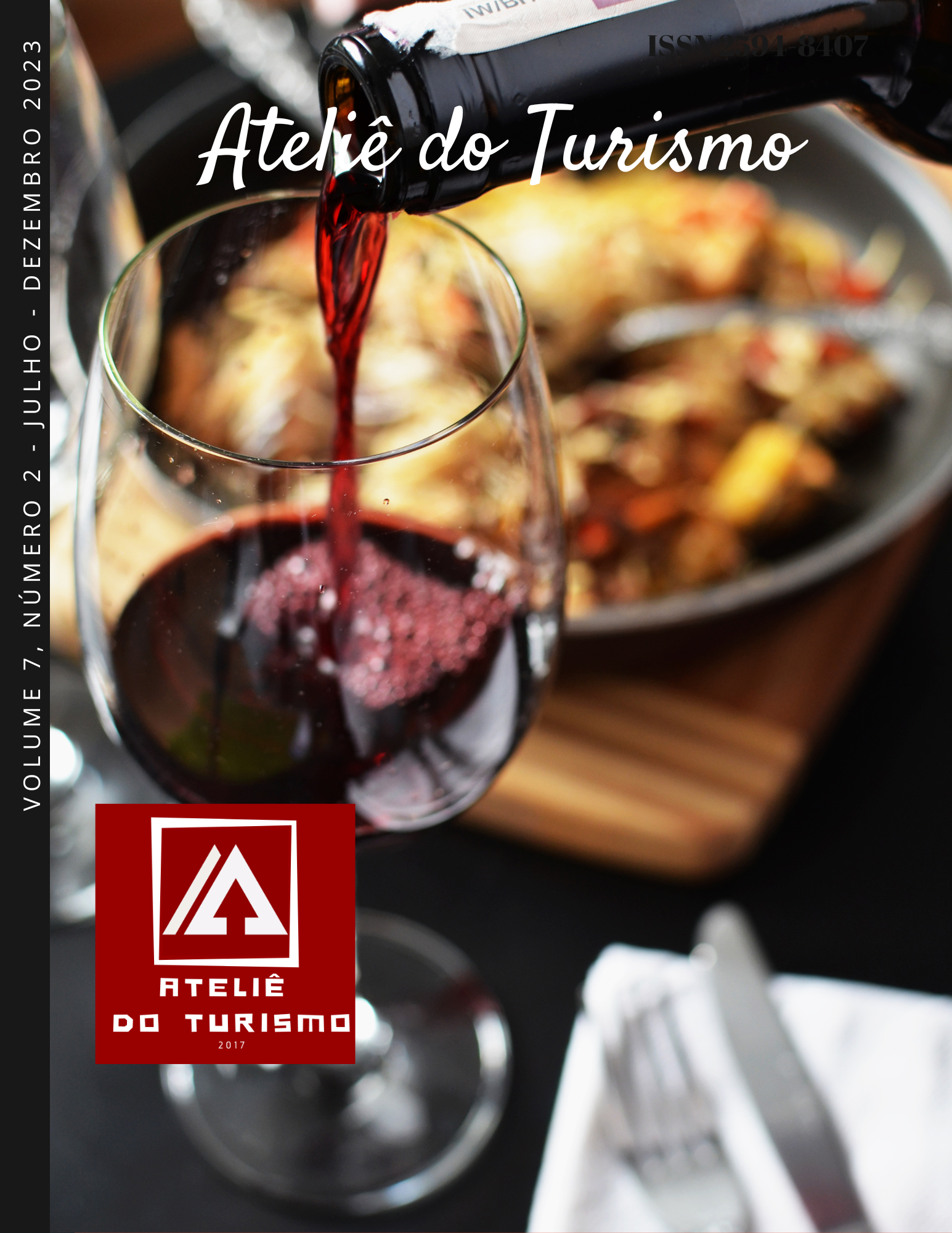Building a corpus of tourism scientific texts: foundations, methodology and potentialities
Abstract
The aim of this work is to present the theoretical foundations and methodology used to build a Portuguese-English parallel (abstracts/translations) and comparable corpus (abstracts) of scientific abstracts in Tourism (named TEXTur), aimed at scientific writing practice, teaching and research, highlighting its applications and potentialities. Three highly ranked Brazilian tourism journals were selected in order to extract abstracts published in Brazilian Portuguese and their translations into English, and three highly ranked international journals of tourism were selected in order to extract abstracts published in English. Texts collected were divided into sentences and annotated according to the corresponding rhetorical movement (Introduction/Gap/Objective/Methodology/Result/Conclusion), based on the model proposed by Swales and Feak (2009) and enhanced by Feltrim (2004). Regarding the parallel corpus, original and translated texts were aligned side by side. Time frame refers to issues published within the four last years (2018-2021). In this paper we present some partial results, with data extracted from one of the national journals (Revista Brasileira de Pesquisa em Turismo – RBTur – Brazilian Journal of Tourism Research) and one of the international journals (Journal of Travel Research - JTR). A total of 92 pairs of abstracts/translations extracted from RBTur were aligned, divided into sentences and annotated. Within the same time frame, 360 abstracts extracted from JTR were divided into sentences and annotated. As practical implications of this research, we point out the potential application of the corpus as (1) a teaching resource in Methodology and Academic Writing classes (2) a source for data extraction and observation aimed at different types of Linguistics research (3) an input for the development of scientific writing tools and (4) a source of information for students, professors, and researchers. The originality of the research lies in the fact that the corpus consists of scientific texts exclusively from the field of tourism.
Downloads
References
Aranha, S. (2007). A busca de modelos retóricos mais apropriados para o ensino da escrita Acadêmica. Revista Do GEL, 4(2), 97–114. https://revistas.gel.org.br/rg/article/view/363.
Baker, M. (1993). Corpus Linguistics and translation studies: implications and applications. Em Baker, M.; Francis, G.; Tognini-Bonelli, E. (org.). Text and technology: in honour of John Sinclair. Amsterdam: John Benjamins.
Baker, M. (1995). Corpora in translation studies: an overview and some suggestions for future research. Target, 7(2), 223-243.
Baker, M. (1996). Corpus-based translation studies: the challenges that lie ahead. Em SOMERS, H. (ed.). Terminology, LSP and translation studies in language engineering: in honour of Juan C. Sager. Amsterdam: John Benjamins, p. 177-186.
Berber Sardinha, A. P. (2000). Linguística de corpus: histórico e problemática. Delta: documentação de estudos em linguística teórica e aplicada, São Paulo, 16(2), 323-367. https://doi.org/10.1590/S0102-44502000000200005.
Carvalho, C. T. De; Laranha; L. A. N.; Pinto, P. T. (2021). DIY corpora: o que são e para quem são?. Tradterm, São Paulo, 37(1), Janeiro, 2021, p. 64-87. https://doi.org/10.11606/issn.2317-9511.v37p64-87.
Caseli, H. De M.; Nunes, M. das G. V. (2004). Corpus paralelo e corpus paralelo alinhado: propriedades e aplicações. Estudos Lingüísticos, 33, p. 581-586.
Gil, B.; Aranha, S. (2017) Um estudo do gênero abstract na disciplina de Antropologia: a heterogeneidade da(s) área(s). Delta, 33(3)R, 843-871. https://doi.org/10.1590/0102-445090396888115541
Marcuschi, L. A. (2002). Gêneros Textuais: definição e funcionalidade. In: Dionisio, A. P.; Machado, A. R.; Bezerra, M. A. (org.). Gêneros Textuais e Ensino. Rio de Janeiro: Lucerna.
Marquiafável, V. S. (2007). Um processo para a geração de recursos lingüísticos aplicáveis em ferramentas de auxílio à escrita científica. 273 f. 2007. Dissertação (Mestrado em Linguística) - Universidade Federal de São Carlos, São Carlos.
Rejovsky, M. (2010). Produção Científica em Turismo: análise de estudos referenciais no exterior e no Brasil. Turismo em análise, 21(2), 224-246. https://doi.org/10.11606/issn.1984-4867.v21i2p224-246.
Swales, J. (1990). Genre analysis: English in academic and research settings. Cambridge: University Press.
Tagnin, S. E. O. (2013). O jeito que a gente diz: combinações consagradas em inglês e português. Barueri: Disal.
Tagnin, S. E. O. (2011). Linguística de Corpus e Fraseologia: uma feita para a outra. Em Ortiz, M. L. A.; Unternbaumen, E. H. (Org.). Uma (re)visão da teoria e da pesquisa fraseológicas. Campinas: Ponte, p. 227-302.
Tanikaki, S. de F. B.; Souza, J. W. da C. (2021). Criação e Anotação do corpus de resumos científicos de Ciências Sociais Aplicadas. Anais do 13º Simpósio Brasileiro de Tecnologia da Informação e da Linguagem Humana (STIL), Evento Online. Porto Alegre: Sociedade Brasileira de Computação, 2021. p. 437-441.
Authors/researchers who publish in Ateliê do Turismo accept the following terms:
1 - Copyright:
Authors/researchers retain their copyright, but grant Ateliê do Turismo non-exclusive exploitation rights (reproduction, distribution and publicity). They grant Ateliê do Turismo the right of first publication of their work/research, which will be simultaneously subject to the license indicated in point 2. Authors may establish other additional agreements for the non-exclusive distribution of the version of the work published in Ateliê do Turismo, provided that their initial publication in this journal is acknowledged.
2 - License.
This work is licensed under a CC BY 4.0
You are free to:
- Share — copy and redistribute the material in any medium or format for any purpose, even commercially.
- Adapt — remix, transform, and build upon the material for any purpose, even commercially.
- The licensor cannot revoke these freedoms as long as you follow the license terms.
Under the following terms:
- Attribution — You must give appropriate credit , provide a link to the license, and indicate if changes were made . You may do so in any reasonable manner, but not in any way that suggests the licensor endorses you or your use.
- No additional restrictions — You may not apply legal terms or technological measures that legally restrict others from doing anything the license permits.




